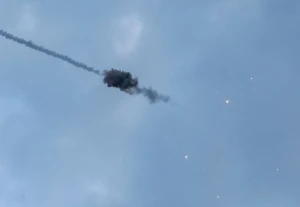
Russian-Ukrainian War: Culmination
It appears the Russian-Ukrainian war has reached its decisive point
We’re at a stage where neither side is willing nor capable of escalating to total war, which would demand maximum mobilization and an all-out commitment of resources.
In this ongoing (but not total) war, both the Ukrainian and Russian systems are operating at their limits. Cracks are beginning to show in both, driven by external pressures and inherent inefficiencies.
Both sides are grappling with a shortage of frontline troops. Real societal mobilization for victory is lacking. Instead, dominating are those eager to win by proxy. Half a million are fighting; tens of millions are either cheering or merely watching.
Allies and partners on both sides are urgently pushing for an end to the conflict. Both nations face systemic energy issues. For both, military service is still seen as a burden for the poor and the honorable. Corruption thrives in both. And in both, the war is drastically diminishing the prospect of a better future.
Ukraine is winning due to motivation, social unity, national support for its Defense Forces, backing from the West, and innovative approaches. Russia is pressing hard, relying on its sheer size, Soviet-era weapon stockpiles, more systematic methods, and brutality.
Likely, both Zelenskyy and Putin want to fight until they achieve victory. But they both know that without fully mobilizing their societies and shifting the entire system to a wartime footing, the system might collapse. Thus, within the current context, the war has reached its peak.
Now, the critical question is: under what terms will both parties agree to cease fire? It’s evident that the 1991 borders, along with Ukraine's four regions and Crimea, are unattainable goals for which neither side has the resources. And they know it.
So, we’ve entered a phase of bluffing, extreme resolve, and cold-blooded calculation to secure the best possible negotiating position. This also involves holding back reserves for a final push if needed. The outcome now hinges on the cool-headedness and skill of the negotiators — whether we secure favorable terms to end this stage of the war, or whether we lose much more than we could have.
Armies merely set the stage for political negotiations. It’s the politicians who determine the terms for ending the war and establishing the post-war order. And here, for some reason, I am very concerned. Can you guess why?
About the author. Hennadiy Druzenko, head of the Pirogov First Volunteer Mobile Hospital (PFVMH), a public figure
The editors do not always share the opinions expressed by the blog authors.
- News













































